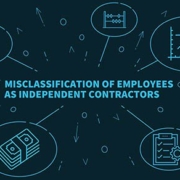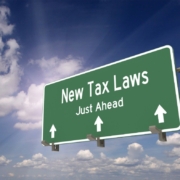EEOC Guidance Addresses Requiring Proof of COVID-19 Vaccination
- Find out if you can legally require employees to show proof of COVID-19 vaccination.
- Can employees refuse vaccinations based on religious beliefs, practice, or observance?
- Find out how to accommodate employees who cite objections/exceptions to vaccinations.
- Be sure to warn employees not to include genetic information with proof of vaccination.
Many organizations still have employees working remotely during the pandemic, but this isn’t feasible in every industry, of course. If you run a fully or partially staffed office or facility, you may wonder whether you’re legally allowed to require on-site workers to prove that they’ve received a COVID-19 vaccination when it’s available to them.
In mid-December, the Equal Employment Opportunity Commission (EEOC) issued guidance on this topic. The guidance came in the form of updated Q&As on its website. Based on the guidance available now, Fiducial has some important points regarding COVID-19 proof-of-vaccination policies.
You may require most employees to provide proof they’ve received a COVID-19 vaccination
However, two notable exceptions must apply. First, you need to exempt employees who are unable to receive a vaccine because of a disability. The EEOC guidance explains: “… employer questions, such as asking why an individual did not receive a vaccination, may elicit information about a disability” that could potentially create conflicts with the Americans with Disabilities Act.
Second, you must grant an exception to employees who refuse a vaccination because of a religious belief, practice, or observance. The agency does note, “[if] an employer has an objective basis for questioning either the religious nature or the sincerity of a particular belief, practice, or observance, the employer would be justified in requesting additional supporting information.”

Prepare to explore accommodations for employees who cite one of the exceptions
If an employee claims to be unable to get vaccinated because of a disability or for religious reasons, the EEOC advises employers to assess whether that person poses a “direct threat scenario” to the workplace. If he or she does, you need to engage in a good-faith effort to find an accommodation that allows the employee to work safely on-site.
In cases where you cannot identify a reasonable accommodation, you may legally exclude those employees from the workplace. However, the agency warns that “this does not mean the employer may automatically terminate the worker.”
Make sure to urge employees not to include genetic information when providing proof of COVID-19 vaccination
As you may be aware, Title II of the Genetic Information Nondiscrimination Act forbids employers from using genetic data to make employment decisions. It also severely restricts the acquisition and disclosure of such information. In keeping with these rules, employers should advise employees who provide proof of COVID-19 vaccination to exclude genetic data included in their health care providers’ documentation.
The pandemic continues to drive rapid change in the flexibility and application of many laws and regulations. Consult an employment attorney on the legal implications of any action you’re considering regarding COVID-19 vaccinations. Need help assessing and managing the considerable financial challenges of being an employer? Call Fiducial at 1-866-FIDUCIAL or make an appointment at one of our office locations.
Ready to book an appointment now? Click here. Know someone who might need our services? We love referrals!
For more small business COVID-19 resources, visit Fiducial’s Coronavirus Update Center to find information on SBA loans, tax updates, the Paycheck Protection Program, paid sick and family leave, and more.









